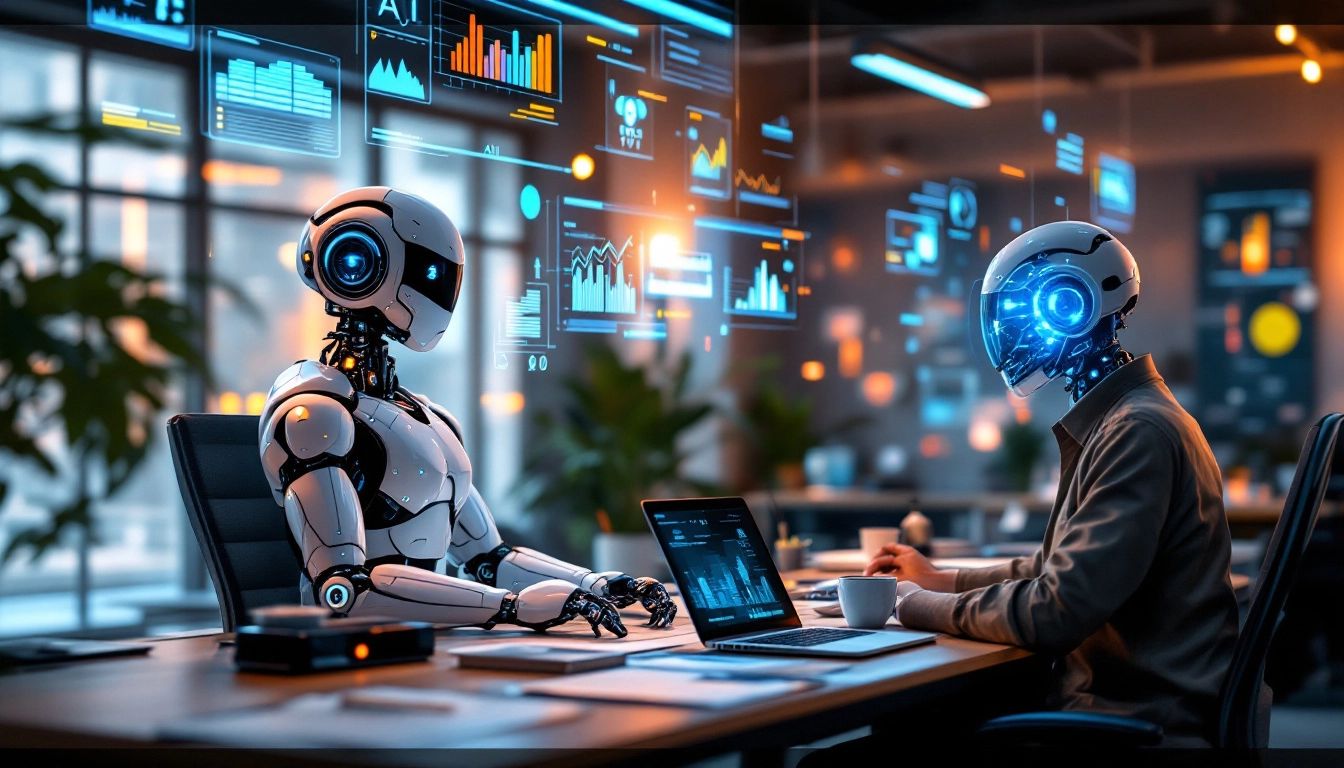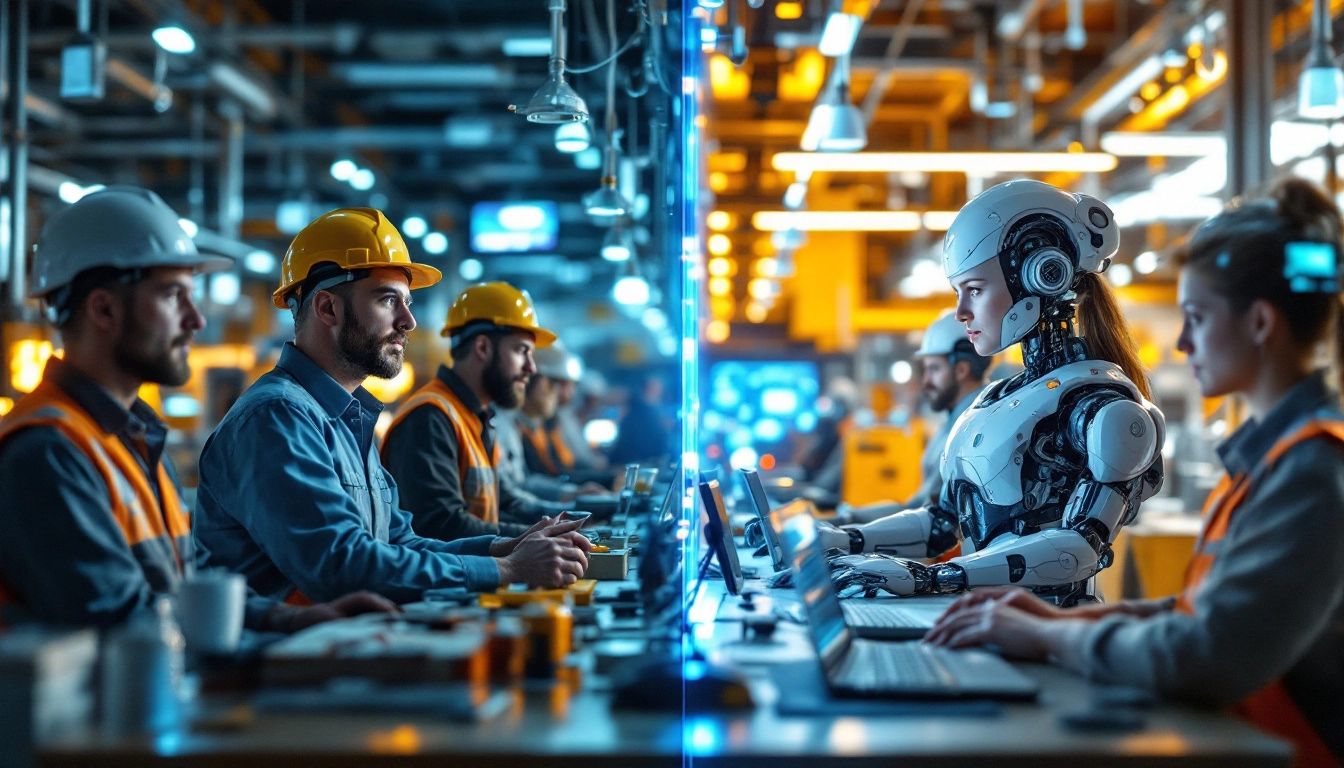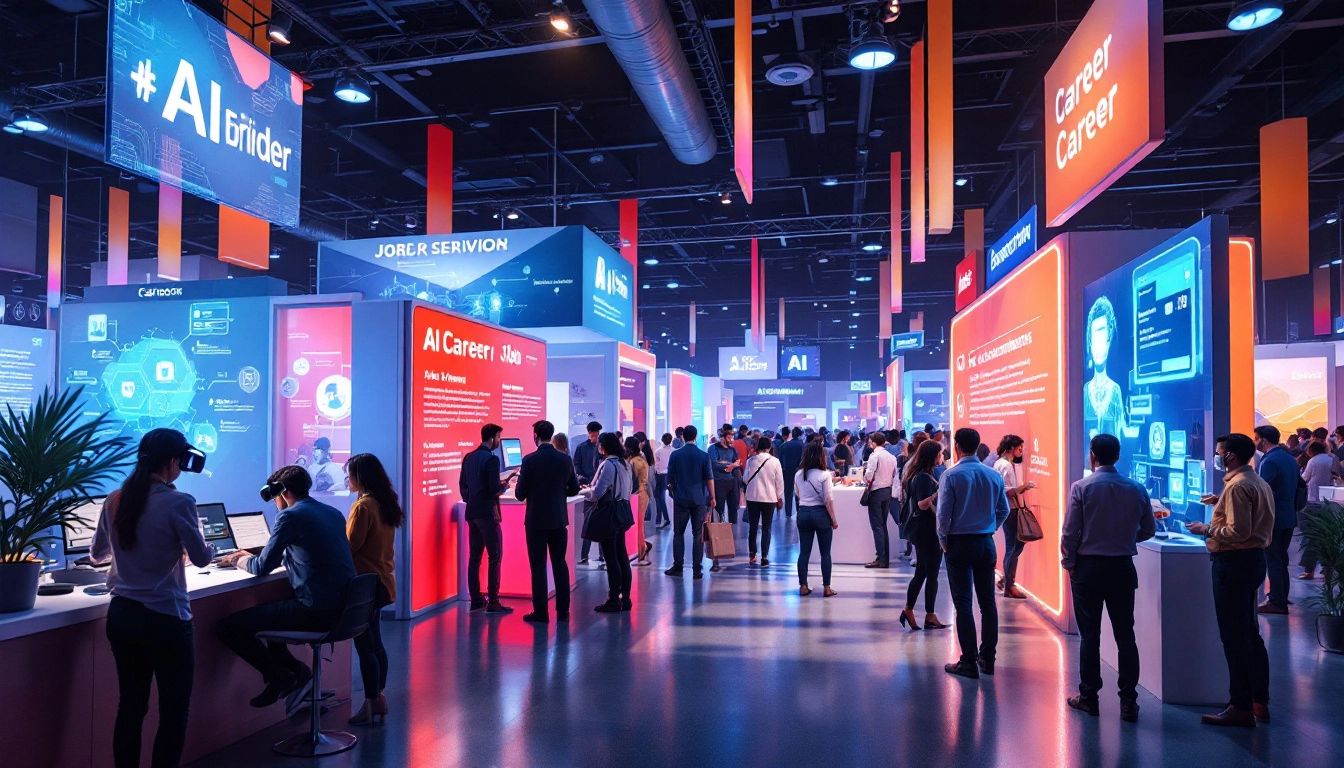Explore the profound impact of AI on jobs, from displacement and transformation to the emergence of new roles. We delve into the implications for different industries, demographics, and the future of work itself.

Artificial intelligence is quickly changing how we work. AI affects jobs in many ways, from simple automation to the creation of entirely new fields. It’s important for both individuals and companies to understand how AI is changing the job market because its influence will only grow in the coming years.
One of the biggest questions about AI is if it will eliminate jobs. While it’s true that AI can automate many of the tasks we do today, that doesn’t automatically mean people will be out of work. History has shown that when technology changes, the kinds of jobs available change too, they aren’t eliminated entirely.
Consider the rise of the personal computer. This didn’t result in offices emptying out, it resulted in office workers doing different kinds of work. Similarly, AI will probably change how many jobs are done, and workers will need to adapt by learning new skills and working with new technologies.
This shift in the job market has both pros and cons. Workers in certain fields might find their jobs are automated, while at the same time AI is creating brand new jobs in areas like data science, software development, and AI engineering.

While AI opens up new possibilities, some jobs are more likely to be automated than others. Let’s explore which sectors and roles will likely change because of AI.
It’s important to remember that jobs won’t disappear overnight because of AI. It’s more realistic to expect a transformation of existing jobs that will require workers to adapt their skills and work in conjunction with AI systems.
For example, AI might be able to automate parts of financial analysis, but human financial advisors will still be needed to explain what the data means, provide guidance, and build relationships with clients. The key takeaway is that being able to adapt and continuously learn will be very important for success in an AI-driven job market.

While some people are worried about AI eliminating jobs, it’s also creating exciting new opportunities. As AI reshapes industries, it creates a need for professionals who can build, manage, and collaborate with these intelligent systems. Let’s explore some of the emerging roles and fast-growing sectors thanks to AI.
Beyond these core AI industries, AI is creating new roles and transforming existing ones across all sectors. Healthcare is seeing more AI-assisted diagnosis and personalized medicine, which requires healthcare professionals who are comfortable using these technologies. Marketing is increasingly driven by AI-powered analytics and targeted advertising, leading to new opportunities for data-savvy marketers.
The impact of AI on jobs is a process of evolution, not just replacement. While some tasks may be automated, new roles will appear, and existing jobs will require new skills. To thrive in this evolving job market, it’s important to commit to lifelong learning and be adaptable.
As AI becomes more deeply integrated across industries, the skills needed for success are evolving. It’s not just about understanding complex algorithms; it’s about combining technical knowledge with distinctly human abilities. So, what skills will help you succeed in the AI-powered future of work?
Because technology is advancing so rapidly, continuous learning is no longer a choice; it’s essential for keeping up. Embrace a growth mindset, stay curious, and be open to learning new skills throughout your career. Being adaptable will be your greatest strength in the AI era.
The impact of AI goes far beyond individual careers; it affects our economies and how we live. As AI systems become more advanced, they will have a greater effect on employment patterns, how income is distributed, and social structures.
One of the most significant economic implications of AI is its ability to increase productivity and economic growth. AI has the potential to unlock new levels of efficiency and innovation by automating tasks and augmenting human capabilities. This could lead to increased output and economic expansion.
However, this potential for growth comes with challenges. As AI automates certain jobs, we need to ensure that displaced workers are able to retrain and learn new skills for the jobs in an AI-driven economy. If we don’t address this, it could result in increased income inequality and social unrest.
The widespread adoption of AI could also lead to a shift in the types of jobs available. While AI might displace some jobs in manufacturing and transportation, it’s simultaneously creating new jobs in fields like data science, AI engineering, and software development. This highlights how important it is for education systems to keep up and equip future generations with the skills they will need to succeed.
Beyond the economic effects, the impact of AI on jobs also raises important social questions. For instance, if AI algorithms aren’t carefully developed and monitored, they can perpetuate biases found in the data they are trained on. This can lead to unfair or discriminatory outcomes, especially in hiring, lending, and even the criminal justice system.
As more jobs are automated, it also makes us think about the future of work. What will the social and psychological implications be in a world where much of the workforce is engaged in tasks heavily reliant on or even controlled by AI?
We need a multifaceted approach to address these challenges. Governments, schools, and private companies all have a role to play in creating policies, supporting skills development, and promoting ethical AI practices. By proactively navigating these complexities, we can use the power of AI for good while mitigating its potential downsides, leading to a more inclusive and equitable future of work for everyone.

AI is inevitably going to be integrated into the workplace. But this isn’t something to fear! This shift is an opportunity for both individuals and organizations to adapt and thrive. Let’s explore how we can get ready for this new world of work.
Ready to make your documentation process more efficient and empower your developers in the age of AI? Discover the power of automated documentation with DocuWriter.ai. Visit our website today!